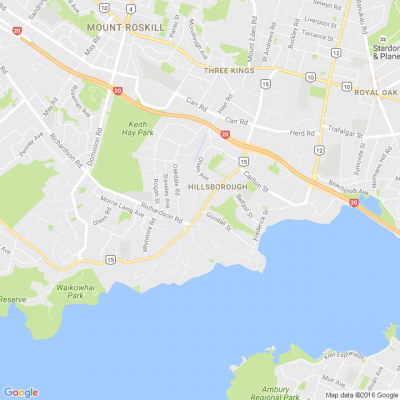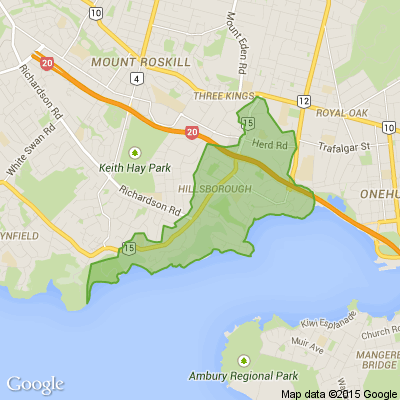Senior Constable Don Allan's monthly newsletter
Hi Neighbours,
Don's newsletter starts with ways to reduce local crime " residents are the eyes and ears " for the Police "along with timely and accurate information" including CCTV images provided also by residents.
There's a safer plates notification in the newsletter also.
Please read the attached newsletter and if possible please pass it on, it doesn't matter where the person lives, the information Don provides is valuable anywhere......
My comment is, lock up your cars, put a steering lock on, have an immobiliser fitted, remove all valuables from your car - laptops, phones, lawnmowers, golf clubs, the kitchen sink ,etc etc.
From the newsletter for Onehunga......
The streets with multiple reported incidents were:
Onehunga Mall (10 incidents) 8 x burg, 1 x stolen motor, vehicle 1 x theft x-car
Church St (8 incidents) 4 x burgs, 3 x stolen vehicles, 1 x theft ex-car
Mt Smart Rd (6 incidents) 4x burgs 1 x stolen vehicle 1 x theft ex-car
Arthur St ( 4 incidents) 2 x burgs, 2 x stolen vehicles
Mays Rd ( 4 incidents) 4 x burgs
Rawhiti Rd (3 incidents) 2 x burglary, 1 x stolen vehicles
Spring St (3 incidents) 2 x burglaries, 1 x stolen vehicles
Campbell Rd (3 incidents) 2 burglaries, 1 x theft ex-car
Normans Hill Rd (3 incidents) 1 x burg, 2 x stolen vehicles
Captain Springs Rd (2 incidents) 2 x burgs
Waitangi Rd (2 incidents) 1 x burglary, 1 x stolen vehicle
Selwyn St (2 incidents) 1 x burglary 1 x theft ex-car
Namata Rd (2 incidents) 1 x burglary, 1 x stolen vehicle
Wallath Rd (2 Incidents) 1 x burglary, 1 x theft ex-car
Rockfield Rd (2 Incidents) 1 x burglary, 1 x stolen vehicle
Grey St (2 Incidents) 1 x stolen vehicle, 1 theft ex-car
Grotto St (2 Incidents) 2 x theft ex-car
Stay safe neighbours.
Regards
Colleen
Poll: Should all neighbours have to contribute to improvements?
An Auckland court has ruled a woman doesn’t have to contribute towards the cost of fixing a driveway she shares with 10 neighbours.
When thinking about fences, driveways or tree felling, for example, do you think all neighbours should have to pay if the improvements directly benefit them?

-
82.5% Yes
-
14.7% No
-
2.8% Other - I'll share below
New shows at Stardome
It's a stellar time to head to Stardome, with five new shows starting from November through to January!

The Influence of the Whānau - Day 9
In a small Māori pā (village) nestled beside a flowing river, a young boy named Rangi lived with his whānau. Rangi was curious and adventurous, always exploring the ngahere (forest) and listening to the stories of his kaumātua (elders). The kaumātua would often remind him, “He waka eke noa”—we are all in this together, and our actions affect the collective.
Rangi's best friend, Manu, was a clever boy but sometimes made poor choices. Manu had recently begun spending time with a group of older boys from another pā who were known for their reckless behavior. They would waste kai (food), leave rubbish in the ngahere, and even disturb the sacred awa (river) by throwing stones at eels.
One day, Manu invited Rangi to join the group, saying, “Come on, Rangi! They’re fun, and they won’t hurt anyone. We’re just having a good time!” Unsure, Rangi agreed, feeling pressure to fit in.
The group’s leader, Matiu, proposed a game: they would sneak into the kaumātua's kumara patch at night and take some for a "feast." Rangi hesitated. He remembered the kaumātua saying how much work went into growing the kumara, with karakia (prayers) and care for the soil. But he stayed silent, feeling outnumbered.
That night, the group raided the garden. As they laughed and ate the stolen kumara by the fire, Rangi felt uneasy. He realized that this was not who he wanted to be. When he saw Manu’s joy in impressing Matiu, Rangi felt torn but remained quiet.
The next morning, the kaumātua discovered the missing kumara and the trampled garden. They called the entire pā together, expressing sadness, not anger. “Our ancestors teach us that the whenua (land) provides for all of us, but only if we treat it with respect,” said one elder. “When we harm the whenua, we harm ourselves.”
Rangi’s heart sank. That evening, he confessed to the kaumātua and his whānau, explaining everything. To his surprise, they did not scold him harshly. Instead, they said, “He tangata tītoki, he tangata rākau—a person is like a tree; they grow straight when supported by others. You must choose companions who uphold the values of your whānau and whenua.”
Rangi decided to distance himself from Manu’s new group and instead spent time with those who respected the land and upheld the teachings of their ancestors. Over time, he encouraged Manu to rejoin him, and together they worked to rebuild the kumara patch, learning from the kaumātua.
---
Moral
This story highlights the importance of right company and like-mindedness. It shows that no one is inherently bad, but the influence of others and the situations we choose can lead us astray. Surrounding ourselves with those who uphold values like respect, care, and collective well-being ensures a life of balance and harmony.
Ka mua, ka muri — by learning from the past, we can walk into the future.







 Loading…
Loading…











